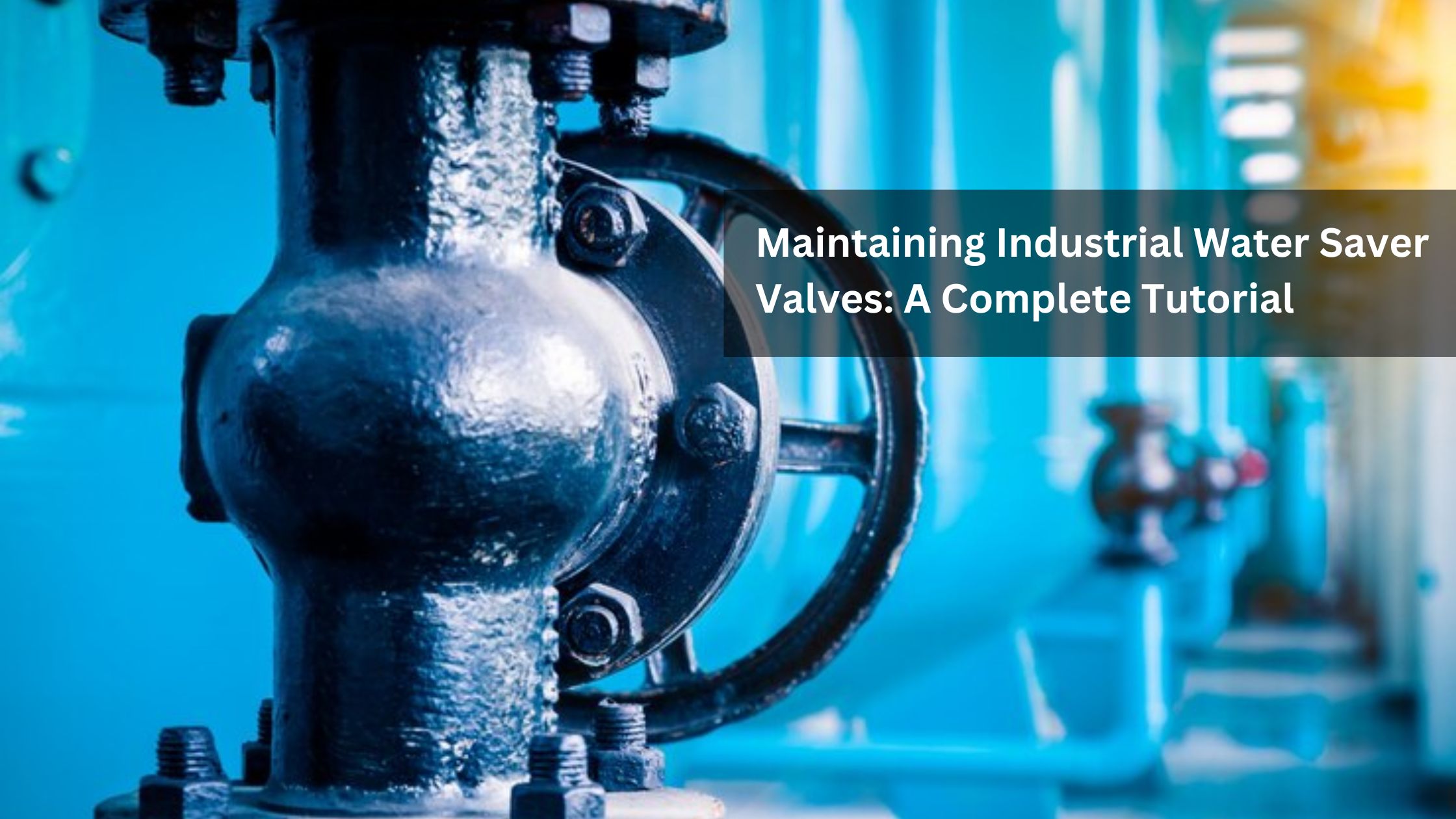Maintaining Industrial Water Saver Valves: A Complete Tutorial

In industrial operations, efficiency isn’t just a buzzword—it’s a necessity. Companies worldwide are increasingly turning their attention to sustainable practices, not only to reduce costs but also to minimize their environmental footprint. One crucial aspect of this pursuit is the effective management of water usage, and at the heart of this effort lies Industrial Water Saver Valves. These valves, often overlooked yet immensely vital, play a pivotal role in conserving water without compromising functionality. In this comprehensive guide, Proteus Industries delves into the intricacies of Industrial Water Saver Valves, offering insights into their maintenance, benefits, and critical role in sustainable industrial practices.
Understanding Industrial Water Saver Valves
Industrial Water Saver Valves are innovative devices designed to regulate and optimize water flow in industrial settings. Unlike conventional valves, which operate without regard for water conservation, these specialized valves are engineered to minimize water wastage without compromising operational efficiency. By controlling the flow rate and pressure, Industrial Water Saver Valves help industrial facilities achieve significant water savings while simultaneously reducing costs and environmental impact.
The Importance of Maintenance
Industrial water-saving valves require regular maintenance to ensure optimal performance like any other industrial equipment. Ignoring maintenance can lead to different issues, including leaks, decreased efficiency, and costly downtime. Therefore, organizations must implement a proactive maintenance regimen for their Industrial Water Saver Valves. This involves routine inspections, cleaning, and calibration to address any potential issues before they escalate.
Maintenance Procedures for Industrial Water Saver Valves
1. Inspecting for Leaks
Regularly check Industrial Water Saver Valves for any indications of leakage. Even little leaks can add up to substantial water wastage over time.
2. Cleaning and Lubrication
Keep the valves clean and well-lubricated to ensure smooth operation. Accumulated debris or corrosion can impede performance and lead to premature wear and tear.
3. Calibration
Periodically calibrate Industrial Water Saver Valves to maintain accurate flow control. This ensures that the valves operate at peak efficiency, maximizing water savings.
4. Replacing Worn Components
Inspect valves for worn or damaged components and replace them promptly to prevent operational issues.
5. Testing
Regularly test the valves under various operating conditions to verify their performance and identify potential issues.
Benefits of Industrial Water Saver Valves
The adoption of Industrial Water Saver Valves offers a myriad of benefits for industrial facilities:
Water Conservation:
By reducing water wastage, these valves help companies minimize their environmental impact and conserve valuable resources.
Cost Savings:
Lower water consumption translates to reduced utility bills, resulting in substantial cost protection for industrial processes.
Regulatory Compliance:
Many regions have strict regulations regarding water usage. Companies can ensure compliance with these regulations by implementing water-saving measures such as Industrial Water Saver Valves.
Enhanced Sustainability:
Incorporating water-saving technologies aligns with corporate sustainability goals, strengthening the company’s reputation and appeal to environmentally-conscious consumers.
Conclusion
Industrial Water Saver Valves represent a simple yet highly effective solution for industrial facilities looking to enhance their water conservation efforts. By incorporating these valves into their operations and implementing a proactive maintenance regimen, companies can enjoy significant cost savings, regulatory compliance, and enhanced sustainability. At Proteus Industries, we understand the importance of water conservation in industrial settings, and our range of Industrial Water Saver Valves is designed to help companies achieve their goals efficiently and responsibly. Contact us today to learn more about how our solutions can benefit your business.
FAQs about Industrial Water Saver Valves
1. How do Industrial Water Saver Valves work?
Industrial Water Saver Valves regulate water flow by adjusting the flow rate and pressure to minimize wastage while maintaining operational efficiency.
2. Are Industrial Water Saver Valves suitable for all industrial applications?
Industrial Water Saver Valves can be customized to suit various industrial settings, including manufacturing, processing, and agriculture.
3. What maintenance procedures are recommended for Industrial Water Saver Valves?
Regular inspections, cleaning, lubrication, calibration, and component replacement are essential maintenance procedures for Industrial Water Saver Valves.
4. How can companies benefit from using Industrial Water Saver Valves?
Companies can enjoy reduced water consumption, cost savings, regulatory compliance, and enhanced sustainability by incorporating Industrial Water Saver Valves into their operations.
5. Are Industrial Water Saver Valves easy to install?
Industrial Water Saver Valves are created for accessible buildings and integration into living industrial designs.
6. Can Industrial Water Saver Valves be retrofitted into older industrial facilities?
Yes, Industrial Water Saver Valves can typically be retrofitted into older facilities with minimal modifications, providing an immediate boost to water conservation efforts.
7. How long do Industrial Water Saver Valves last?
With proper maintenance, Industrial Water Saver Valves can have a long service life, providing reliable water savings for years.
8. Do Industrial Water Saver Valves require any special training to operate?
While basic training may be necessary for maintenance personnel, operating Industrial Water Saver Valves typically requires no specialized skills.
9. Can Industrial Water Saver Valves be remotely controlled?
Yes, many Industrial Water Saver Valves come equipped with remote control capabilities, allowing for convenient monitoring and adjustment.
10. Are there any government incentives for implementing Industrial Water Saver Valves?
Some governments offer incentives or rebates for companies that invest in water-saving technologies such as Industrial Water Saver Valves, providing additional financial benefits.